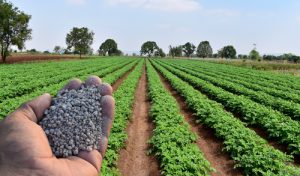
With numerous countries dependent on agriculture becoming keenly aware of the threat of food insecurity during Russia’s invasion of Ukraine, enhancing America’s fertilizer trading relationship with Canada should be a priority of the Biden administration, according to U.S. Sens. Joni Ernst (R-IA) and Deb Fischer (R-NE).
“We write today to urge you to develop and begin executing a strategic plan for the long-term stability of fertilizer trade for our farmers and ranchers,” wrote the senators and two of their colleagues in a May 31 letter sent to U.S. Trade Representative (USTR) Katherine Tai.
“Big agrarian nations like Brazil are already acting to redraw global trade routes, especially regarding fertilizer, to ensure the productivity of their nation and address the needs of a starving world. We must do the same,” they wrote.
In addition to bolstering fertilizer trade with Canada, Sen. Ernst, Sen. Fischer, and their Republican colleagues wrote that the USTR also should consider negotiations to eliminate the cross-border vaccine mandate between the U.S. and Canada that is hindering the movement of goods.
Secondly, the USTR should engage with China to reduce or eliminate its fertilizer export restrictions, which decrease the supply of phosphates on the global market, driving up prices, according to their letter.
“Finally, we strongly encourage you to use the tools at the administration’s disposal to eliminate barriers to the importation of crop nutrients, and to negotiate to ensure fertilizer supplies are abundant and affordable here in the U.S.,” wrote the four senators, who also included U.S. Sens. Chuck Grassley (R-IA) and Roger Marshall (R-KS).
The senators’ letter is in response to the tenacious trade relationship with fertilizer-producing nations like China, Russia, and Belarus that have become increasingly difficult to arbitrate, according to the lawmakers’ staff.
“To believe these problems are only short-term is short-sighted,” they wrote. “We cannot be left scrambling in 2023 and beyond to find crop nutrients; we need to begin working today to solve this inevitable challenge.”



